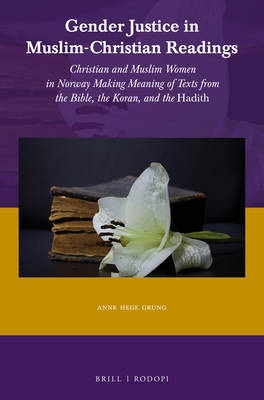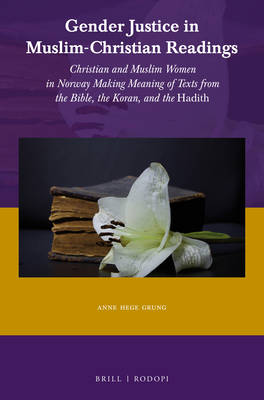
- Retrait gratuit dans votre magasin Club
- 7.000.000 titres dans notre catalogue
- Payer en toute sécurité
- Toujours un magasin près de chez vous
- Retrait gratuit dans votre magasin Club
- 7.000.0000 titres dans notre catalogue
- Payer en toute sécurité
- Toujours un magasin près de chez vous
Gender Justice in Muslim-Christian Readings
Christian and Muslim Women in Norway: Making Meaning of Texts from the Bible, the Koran, and the Hadith
Anne Hege Grung
134,45 €
+ 268 points
Description
In recent decades, women in the Christian and Islamic traditions have been negotiating what it means to participate in religious practice as a woman within the two traditions, and how to interpret canonical scripture. This book creates a shared space for Muslim and Christian women with diverse cultural and denominational backgrounds, by making meaning of texts from the Bible, the Koran, and the Hadith. It builds on the reading and discussion of the Hagar narratives, as well as 1 Timothy 2:8-15 and Sura 4:34 from the New Testament and the Koran respectively, by a group of both Christian and Muslim women. Interpretative strategies and contextual analyses emerge from the hermeneutical analysis of the women's discussions on the ambiguous contributions of the texts mentioned above to the traditional views on women.
This book shows how intertextual dialogue between the Christian and Islamic traditions establishes an interpretative community through the encounter of Christian and Muslim readers. The negotiation between a search for gender justice and the Christian and Islamic traditions as lived religions is extended into a quest for gender justice through the co-reading of texts. In times when gender and the status of women are played into the field of religious identity politics, this book shows that bringing female readers together to explore the canonical texts in the two traditions provides new insights about the texts, the contexts, and the ways in which Muslim-Christian dialogue can provide complex and promising hermeneutical space where important questions can be posed and shared strategies found.
This book shows how intertextual dialogue between the Christian and Islamic traditions establishes an interpretative community through the encounter of Christian and Muslim readers. The negotiation between a search for gender justice and the Christian and Islamic traditions as lived religions is extended into a quest for gender justice through the co-reading of texts. In times when gender and the status of women are played into the field of religious identity politics, this book shows that bringing female readers together to explore the canonical texts in the two traditions provides new insights about the texts, the contexts, and the ways in which Muslim-Christian dialogue can provide complex and promising hermeneutical space where important questions can be posed and shared strategies found.
Spécifications
Parties prenantes
- Auteur(s) :
- Editeur:
Contenu
- Nombre de pages :
- 496
- Langue:
- Anglais
- Collection :
- Tome:
- n° 53
Caractéristiques
- EAN:
- 9789004306691
- Date de parution :
- 25-09-15
- Format:
- Livre broché
- Format numérique:
- Trade paperback (VS)
- Dimensions :
- 155 mm x 236 mm
- Poids :
- 762 g

Les avis
Nous publions uniquement les avis qui respectent les conditions requises. Consultez nos conditions pour les avis.






